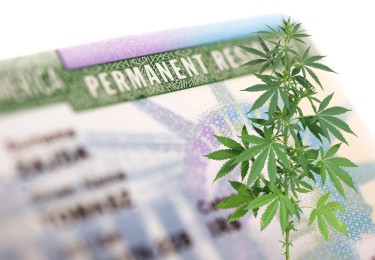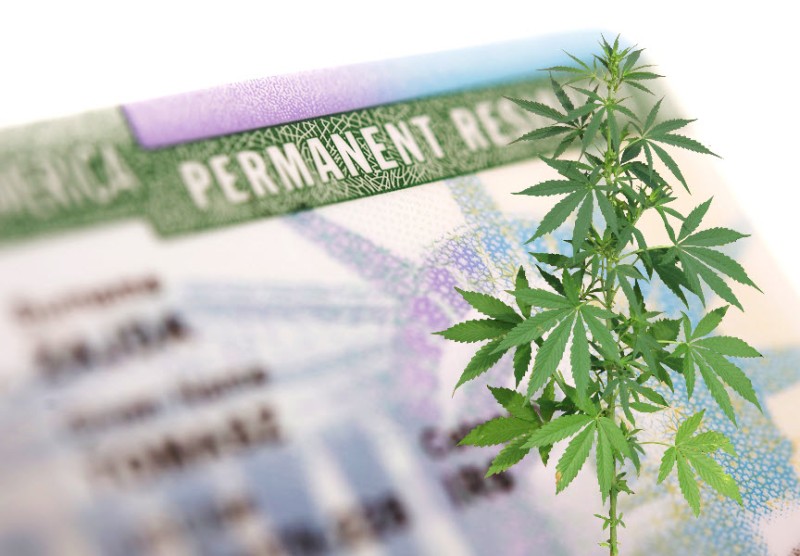
Maine Court Strikes Down Residency Requirement for Medical Cannabis Businesses
The First Circuit Court of Appeals of Maine has taken out the constitutional requirement that medical cannabis dispensaries in the state have to be owned by residents of the state, according to Maine Public Radio. The decision of the court asserts the ruling of a lower court that found that the residency requirement is in violation of the United States Constitution by hindering interstate trade.
Under the law governing Maine’s medical cannabis program, every officer or director of a licensed medical marijuana dispensary has to be a resident of the state. Wellness Connection, the biggest medical cannabis company in Maine, filed a lawsuit in 2020 to oppose the residency requirement on the basis that it is in violation of the 'Dormant Commerce Clause of the Constitution", which forbids states from passing bills that hinder interstate commerce.
In other states that have made cannabis legal, residency requirement has also been taken down, and in 2020 Maine officials announced that the law that requires you to be a state resident before being able to own a recreational marijuana venture would not be implemented but for its medical cannabis program, the restrictions are kept in place.
The U.S District Court for the Maine District judged in the case of the Wellness Connection that the requirement of residency violated the Dormant Commerce Clause and was, therefore, unenforceable. The state, as well as a coalition of medical cannabis businesses, appealed the judgment, arguing that the Dormant Commerce Clause would not be applicable due to cannabis being illegal under federal law. The first circuit maintained the lower court's verdict in a 2-1 decision passed down last week.
The court stated that in spite of the prohibition of cannabis federally, Congress had recognized the presence of a medical marijuana market by the Rohrabacher-Farr Amendment, a clause in appropriations legislation that prevents federal law enforcement from using resources to pursue state-legal medical cannabis firms in criminal cases. By agreeing to the legislation in 2014 and every other year that followed, Congress also recognized that this market might remain in existence in some conditions free from federal criminal enforcement.
This is not a case in which Congress may be understood to have illegalized a national market without expecting that an interstate market would keep operating, the judges wrote in the majority opinion, regardless of the conditions with regard to other goods that Congress has judged contraband. "Quite the contrary,"
JUDGEMENT COULD AFFECT THE CANNABIS TRADE BETWEEN STATES
It is believed by legal experts that the rationale of the judgment could be applied to state laws prohibiting the interstate trade of marijuana among states where cannabis is legal. Such bans might violate the Dormant Commerce Clause as well and be judged unconstitutional.
Robert Mikos, a professor at the Vanderbilt University Law School who specializes in federalism and drug policy, stated to the Marijuana Moment that he thinks this is going to be the next shoe to drop. He added that he doesn't see how licensing preferences can be distinguished from those import and export restrictions. They are equally vulnerable, in his opinion.
An attorney for the cannabis law firm Vicente Sederberg, Shane Pennington, concurs that the ruling has consequences for the federal prohibition on interstate marijuana trade and might become highly disruptive to the state's medical marijuana markets.
According to Pennington, the judgment puts a lot of state legislation that restricts interstate marijuana trade basically in the sights of possible future litigation, he writes in an email. A majority of state-legal regimes are based on statutes that, for instance, prohibit out-of-state trade or non-state residents from owning local marijuana businesses or keep state permits under social equity programs for state residents. The decision of The First Circuit calls the constitutionality of all these states into question.
WHAT IT MEANS FOR FOREIGN MARIJUANA IMPORTS AND EXPORTS
In addition to how the ruling affects interstate marijuana trade, Pennington states that the ruling could also impact federal bans on the import and export of marijuana from and to foreign countries.
Pennington explains that the decision of The First Circuit will make it more difficult for the United States to defend itself against complaints from the International Narcotics Control Board ( the independent enforcement arm of international drug regulation treaties to which the United States is a part of like the Single Convention on Narcotic Drugs of 1961) that the United States is in violation of its international treaty duties by allowing states to legalize marijuana for adult and medical use. In response to these complaints, the United States federal government has claimed that because cannabis usage is still illegal under federal law, it hasn't broken any treaty responsibilities. The First Circuit's ruling will make it challenging for the State Department even to continue presenting that argument with a straight face, even though the U.S.'s detractors have never accepted it.
Pennington points out that the Rohrabacher-Farr Amendment, which shielded regulated medical marijuana enterprises from interference by federal law enforcement authorities, is only one piece of legislation that shows how Congress has agreed to the state's legalization of medical cannabis. Additionally, he states that Congress has a tendency to overlook the global ramifications of American cannabis policy, "but that is a major mistake."
If the United States wants to continue to be taken seriously when it comes to international drug control policy, it must retain its credibility with its treaty partners, Pennington argues. "And the organizations and treaty partners that are observing U.S. marijuana policy so intently are the same ones the U.S. must sway in other drug-control contexts," the author writes. "For example, the U.S. must persuade the international community to adopt a tough stance against China and Mexico for bombarding the U.S. with the highly lethal fentanyl-related substances that are killing countless Americans every day."
BOTTOM LINE
Striking down the residency requirement to own a cannabis dispensary in Maine means outsiders/foreigners could come and take part of the revenue for the cannabis industry in Maine. However, the decision is still being fought by the state and a group of resident cannabis business owners.







